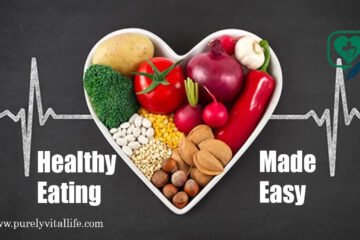The Mediterranean diet has gained immense popularity for being one of the healthiest eating patterns in the world. Inspired by the traditional diets of Greece, Italy, and other Mediterranean countries, it focuses on whole foods, fresh produce, lean proteins, and healthy fats. If you’re a beginner looking to transition into this lifestyle, the first step is mastering your grocery shopping. A well-planned Mediterranean diet shopping list can make all the difference in helping you stay consistent and enjoy the process. In this guide, we’ll walk you through everything you need to add to your cart, along with tips to make healthier choices.
Understanding the Mediterranean Diet
The Mediterranean diet isn’t just a temporary eating plan; it’s a long-term lifestyle approach that emphasizes balance and nourishment. It’s rich in vegetables, fruits, legumes, nuts, seeds, whole grains, and olive oil. Moderate portions of fish, poultry, and dairy are included, while red meat and processed foods are limited.
What makes this diet special is its focus on quality over quantity. Rather than counting calories, the Mediterranean approach encourages mindful eating—savoring meals, eating with family, and prioritizing nutrient-dense foods. Numerous studies link this diet to improved heart health, better digestion, and lower risks of diabetes and obesity. For those who wish to understand the nutritional science behind it, taking a Health And Nutrition Course can help you grasp how different foods impact your well-being.
Essential Staples for Your Pantry
A strong pantry foundation is key to successfully following the Mediterranean diet. Stocking up on non-perishable items ensures you always have the right ingredients at hand for quick, wholesome meals. Here are must-have pantry essentials:
- Whole Grains: Brown rice, quinoa, bulgur, barley, and whole wheat pasta.
- Legumes: Chickpeas, lentils, kidney beans, and black beans.
- Nuts and Seeds: Almonds, walnuts, chia seeds, flaxseeds, and sunflower seeds.
- Healthy Oils: Extra virgin olive oil is the cornerstone of this diet. You can also include avocado oil for variety.
- Herbs and Spices: Oregano, basil, rosemary, thyme, and garlic powder for authentic Mediterranean flavor.
These staples not only add depth and flavor but also provide fiber, antioxidants, and heart-healthy fats. Keeping them stocked ensures you can prepare balanced meals any day of the week.
Fresh Produce to Prioritize
The Mediterranean diet thrives on fresh produce. Vegetables and fruits should make up the majority of your plate. When grocery shopping, aim for color variety — the more colorful your basket, the more nutrients you’re likely to consume.
Vegetables to Buy:
Tomatoes, spinach, kale, eggplant, bell peppers, onions, broccoli, zucchini, and cucumbers.
Fruits to Include:
Apples, oranges, berries, grapes, figs, and pomegranates.
These foods are packed with vitamins, minerals, and antioxidants that support heart health and overall wellness. Seasonal produce not only tastes better but also offers the best nutritional value. If you’re uncertain about balancing fruit and vegetable intake, a Health And Nutrition Course can provide in-depth knowledge on portion control and nutrient combinations.
Protein Sources: Fish, Poultry, and Plant-Based Options
Protein is essential for muscle repair, hormone regulation, and overall energy. In the Mediterranean diet, emphasis is placed on lean and sustainable protein sources.
- Fish and Seafood: Salmon, sardines, mackerel, and tuna are excellent sources of omega-3 fatty acids, which support heart and brain health. Aim for at least two servings per week.
- Poultry: Chicken and turkey are great lean options.
- Plant-Based Protein: Beans, lentils, and tofu serve as vegetarian-friendly protein alternatives.
Unlike other diets, the Mediterranean approach doesn’t eliminate animal protein entirely—it simply reduces the frequency of red meat consumption. A balance of fish and plant-based protein ensures optimal nutrition without overloading on saturated fats.
Dairy and Alternatives
Dairy products in the Mediterranean diet are consumed moderately and often come in cultured or fermented forms. They add flavor and calcium while supporting gut health.
Opt for:
- Greek yogurt
- Feta cheese
- Ricotta
- Skimmed milk or plant-based alternatives (almond or oat milk)
When choosing dairy, prioritize unprocessed varieties with minimal added sugar. The goal is to enhance meals without compromising health. Greek yogurt with honey and fruit, for instance, makes an ideal breakfast or snack that fits perfectly within this diet’s philosophy.
Healthy Fats and Oils
Healthy fats are the backbone of the Mediterranean diet. They provide satiety, support brain function, and promote heart health. Olive oil should be your go-to fat for cooking and dressing. Use it for salads, roasting vegetables, or even drizzling over pasta.
In addition to olive oil, you can incorporate:
- Avocados
- Nuts and seeds
- Fatty fish (like salmon and tuna)
Avoid trans fats and highly processed oils. Instead, focus on fats from natural, whole sources. If you want to dive deeper into how fats influence metabolism and heart function, a Health And Nutrition Course can give you scientific insights into these dietary principles.
Snacks and Add-ons
Snacking on the Mediterranean diet doesn’t mean reaching for chips or sugary bars. Instead, it involves smart, wholesome choices that keep energy levels stable throughout the day.
Healthy snack ideas include:
- Hummus with carrot or cucumber sticks
- A handful of mixed nuts
- Whole-grain crackers with cheese
- Fresh fruit with yogurt
- Olive tapenade with whole wheat bread
These snacks provide a balance of protein, fiber, and healthy fats to keep hunger in check and prevent overeating during main meals.
Creating a Simple Mediterranean Meal Plan
Once your shopping list is ready, it’s time to turn those ingredients into daily meals. Here’s a simple beginner-friendly plan:
Breakfast: Greek yogurt topped with berries, honey, and chia seeds.
Lunch: Chickpea salad with olive oil dressing, cucumber, tomato, and feta cheese.
Dinner: Grilled salmon with roasted vegetables and quinoa.
Snack: A handful of almonds or hummus with vegetable sticks.
This structure ensures that your meals are rich in flavor, nutrients, and balance. Over time, you’ll discover how naturally this eating style fits into your daily life.
Conclusion
Starting your Mediterranean diet journey doesn’t have to be complicated. With a thoughtfully prepared shopping list, you’ll have everything you need to create delicious and nutritious meals that support long-term health. Focus on whole foods, minimize processed options, and enjoy the variety this lifestyle offers.
If you want to understand how to build healthy, sustainable eating habits backed by science, consider enrolling in the Health And Nutrition Course from Wise Campus. This course provides in-depth guidance on nutrition, wellness, and how to design balanced meal plans for yourself and others.





